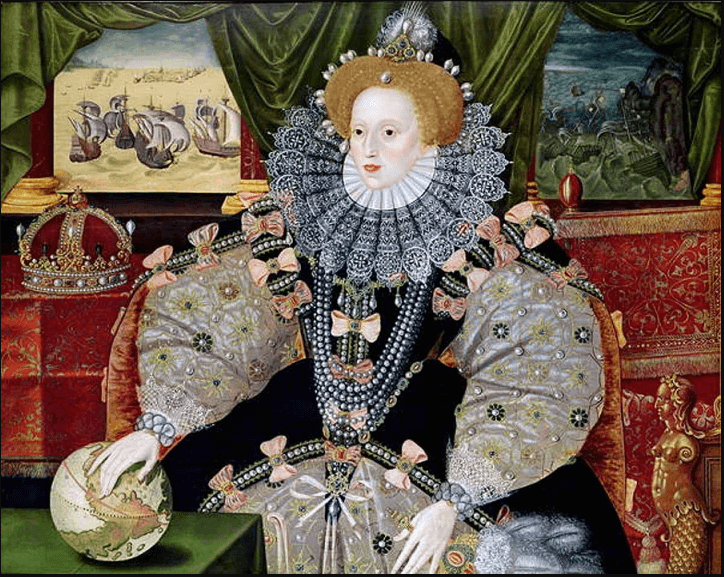In the 21st century, the characters and themes created by William Shakespeare reflect a spectrum of femininity that remains relevant and captivating even in the modern world. Shakespearean heroines continue to inspire and resonate with contemporary audiences, offering a lens through which we can explore the evolving roles and challenges of women in today’s society. Cordelia is one of Shakespeare’s female characters in the play “King Lear,” which was written in the 17th century.
More than 400 years have passed since Shakespeare published his masterpiece, but we still explore his mysteriousness (Wabnik, 2013). In the play, King Lear, the ruler of Britain, announces his plan to divide the kingdom among his three daughters. He asks his three daughters—Cordelia, Goneril, and Regan—to express their love for him. His two older daughters, Goneril and Regan, offer poetic speeches. Cordelia has always been his “favorite” daughter, and when asked how much she loves her father, she does not lie to him and tells him that she loves him as a daughter and should love a father neither more nor less. After hearing this response from his loving daughter, in Act 1, Scene 1 of the play” King Lear” he says “Here I disclaim all my paternal care, propriety, and property of blood, and as a stranger to my heart and me, hold thee from this forever”.
The king not only disowns Cordelia from the kingdom but also banishes her from Britain. She departs for France without arguing with her father, King Lear, and two elder sisters for material gain. She leaves with integrity and takes nothing from the palace. In this tragic play, Cordelia’s chief characteristics are devotion, kindness, beauty, honesty, and truthfulness. She is contrasted throughout the play with Goneril and Regan, who are neither honest nor loving and who manipulate their father for their own ends.
In today’s world, the idea of a character in a story is linked to how we see ourselves as unique and real. Even though these characters are made up, they need to be like the people we know, including how they talk and behave. They might even seem like they’re thinking out loud (Young, 2016). Shakespeare’s Cordelia shares some qualities with women in the modern world, making her character relatable. The first qualities that Cordelia possesses are independence and assertiveness, which were not common among the women of the 17th century, and these qualities make her a woman of the modern world. Cordelia’s refusal to conform to flattery and her willingness to speak her mind assertively resonate with modern ideas of independence and self-expression.
Moreover, her portrayal of leading a military force against injustice demonstrates empowerment and leadership, aligning with modern perceptions of women in positions of strength and authority. In the same way, Cordelia’s strong commitment to honesty and integrity aligns with contemporary values of authenticity and ethical behavior. Her capacity to forgive and reconcile with her father despite the injustice she faced reveals emotional depth and resilience, and it shows she has strong emotions and strength that are useful for dealing with complicated relationships in today’s world.
In consideration of the gender perspectives, it seems like Cordelia was born in the wrong century; her military commitment can be associated with emancipation. Not only does her location in time seem wrong, but her gender makes us believe that she is a modern woman (Wabnik, 2013). Apart from that, individuals who exhibit noble qualities, often face tragic consequences due to societal injustice. Cordelia in Shakespeare’s “King Lear” is a prime example; her unwavering honesty and genuine love for her father lead to her banishment, and despite her virtuous nature, she meets a tragic end.
This theme echoes in today’s world, where individuals of integrity sometimes confront adverse outcomes or challenges due to their commitment to their principles. Individuals who uphold truthfulness and honesty sometimes face negative consequences due to the harsh realities of the world. In this era, similar situations occur where those who are honest might encounter challenges or negative outcomes, especially in environments where dishonesty or manipulation may be more prevalent. This can manifest in various ways, such as facing skepticism, criticism, or even being taken advantage of in certain situations where honesty might not always be the most advantageous or valued trait.
In contemporary society, individuals who display honesty, kindness, or firm principles face hardships, revealing a persistent irony where the virtuous often endure suffering. Dr. Aafia Siddiqui, a Pakistani neuroscientist, exemplifies this concept. Her story, like Cordelia’s, embodies facing tragic consequences despite being a person of principle. Aafia’s commitment to her beliefs and her stance against injustices led to her facing imprisonment and a highly controversial trial. Her dedication to her values in the face of adversity mirrors Cordelia’s unwavering honesty, as both women suffered significant consequences for standing firm in their principles.
These situations highlight the unfortunate reality that those who uphold truth and principles may face great challenges or tragic outcomes in their pursuit of justice or truth. This shows the universal and timeless nature of Shakespeare’s plays, and his themes and characters resonate in every human society. Shakespeare’s profound exploration of human nature, emotions, and societal complexities resonates universally across different cultures and eras. They remain relatable regardless of time or geographical boundaries, allowing his works to be appreciated and understood by audiences worldwide.




